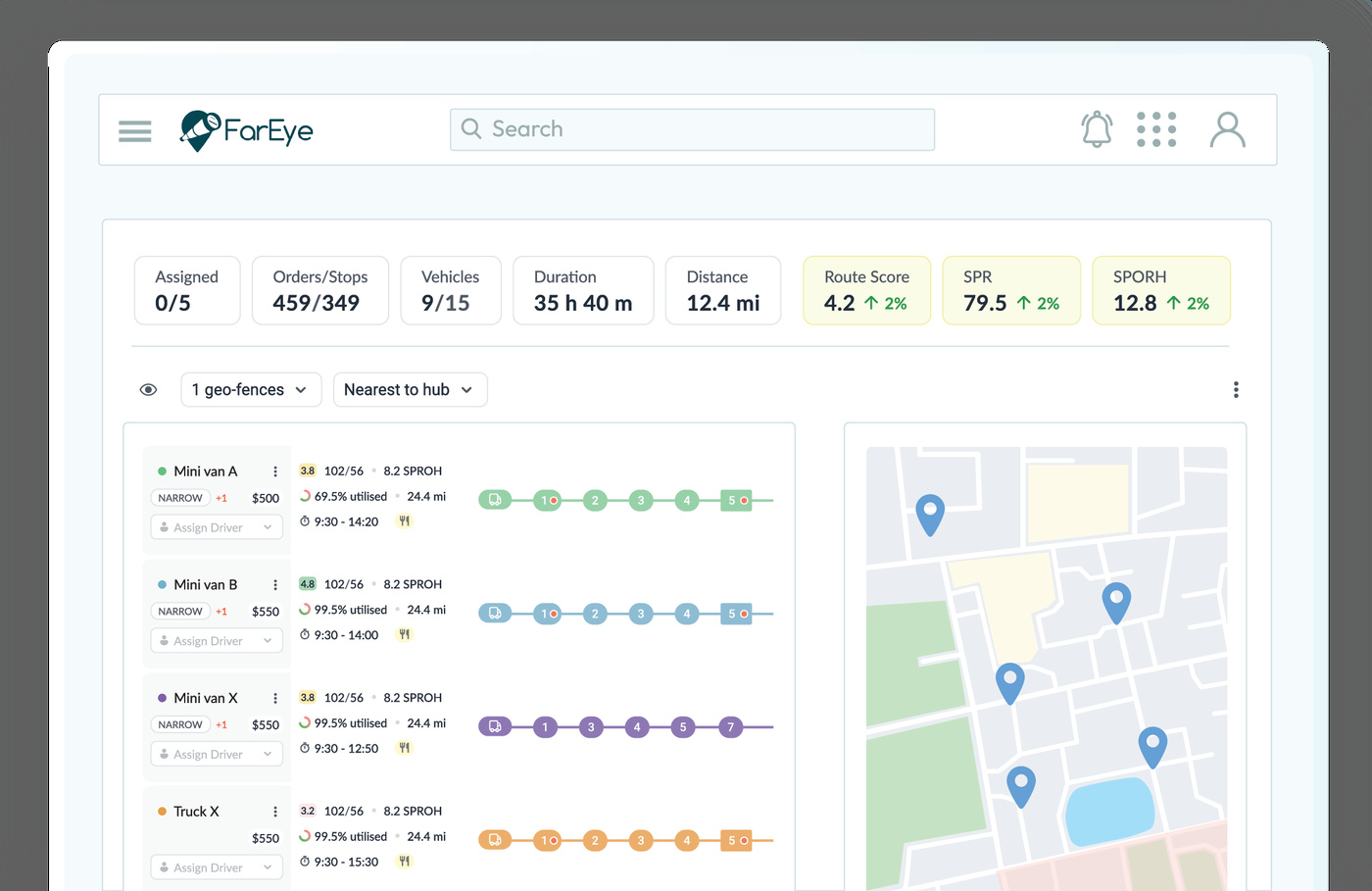- Track
- Ship
What is dispatch tracking in logistics? 8 things you need to know
The e-commerce sector is spoiling your customers with a plethora of choices, adding a layer of convenience to routine purchase decisions. These factors make dispatch tracking extremely important to seamless delivery execution. In addition to having the power to buy whatever we desire in a couple of taps, we are also living in a time where information is readily available at our fingertips. And in this age of instant gratification, nobody wants to jump through hoops to know the status of their exciting purchase.
Customers want to track shipment details instantly, and they want everything in real-time.
But how does a seller or retailer keep them up to date on all the background activities that get triggered right from the moment the purchase is confirmed?
Through dispatch tracking. Dispatch and tracking software serve the end-users what they want on a silver platter. Let’s explore how.
What is dispatch tracking?
Dispatch is the standard process of resource allocation, be it people or vehicles, to handle transportation of goods efficiently. It forms the primary stage of logistics and lays the foundation for the overall delivery experience.
Dispatch track software captures dispatch information and makes it accessible to stakeholders through cloud-based data repositories, data processing systems, and real-time notifications and alerts. As a result, there is absolute end-to-end transparency in the entire shipment and delivery process, both for customers and delivery stakeholders.
From an operational standpoint, dispatch tracking solutions develop harmony between drivers and dispatchers - a problem otherwise plaguing the logistics industry. Additionally, it also optimizes resource consumption while streamlining processes.
Therefore, with the golden touch of a dispatch tracking software, businesses can enjoy and deliver a seamless logistics experience.

What does dispatch mean in shipping?
In shipping, the term "dispatch" typically refers to the process of sending goods or products to their intended destination. It involves a series of steps, including preparing the goods for shipment, coordinating transportation, and arranging for the delivery of the goods to the recipient.
More specifically, when a shipment is dispatched, it means that the shipment has been released from the origin and is on its way to the destination. This may involve the goods being loaded onto a truck, train, plane, or ship, depending on the mode of transportation being used.
Dispatch can also refer to the act of assigning a delivery or transport order to a specific carrier or delivery person. In this context, dispatch involves selecting the appropriate carrier or delivery person for a particular shipment, based on factors such as the delivery location, the type of goods being shipped, and the delivery timeline.
Dispatch Process: What are the steps in it?
The dispatch process in shipping typically involves several key steps, which may vary depending on the specific shipping company or carrier involved. Here are some common steps that are typically involved in the dispatch process:
- Order processing: This step involves receiving and processing the order for the shipment. This may involve verifying the order details, checking the inventory, and preparing the shipment for dispatch.
- Packaging: Once the order has been processed, the goods are typically packaged in appropriate containers or boxes to protect them during transit.
- Labeling: The packaging is then labeled with the relevant information, such as the recipient's address, shipping method, and any other special instructions.
- Carrier selection: The carrier or shipping company is then selected for the shipment, based on factors such as the delivery location, shipping method, and delivery timeline.
- Transport: The shipment is then transported to the carrier's distribution center or directly to the destination, depending on the shipping method and carrier used.
- Tracking: Throughout the dispatch process, the shipment is typically tracked using a tracking number or other identifying information, which allows both the sender and recipient to monitor its progress and estimated delivery time.
- Delivery: Finally, the shipment is delivered to the recipient, typically by a carrier or delivery person, and the delivery is confirmed with a signature or other proof of receipt.

8 Things to Know About Dispatch Tracking and Dispatch Tracking Software
One of the most significant advantages of dispatch tracking is its ability to bridge the dispatching-routing gap. It expertly weaves together businesses/individuals with 3PL delivery and logistics partners to facilitate improved delivery.
Here are eight facts about dispatch tracking:
1. Post-dispatch interoperability
Dispatch tracking patches the post-dispatch interoperability issues faced by sellers. Much like users, retailers can also stay updated on the status of their package.
2. Workforce visibility
It offers visibility to your entire workforce, company assets, and business processes, thereby leaving room for addressing bottlenecks and redundancies.
3. Tracking end-to-end order movement
Dispatch tracking software often comes with integrated end-to-end solutions that maintain a comprehensive blow-by-blow record of the movement of goods until it reaches its destination.
4. Data-driven decision-making
Since dispatch tracking is data-driven, it can integrate with and absorb other data-centric technologies, such as AI-powered automation.
5. Automated task allocation
Software-based dispatch platforms automate task allocation with due consideration to dynamic routing planning.
6. Faster and same-day deliveries
Access to highly and readily available resources expedites deliveries, which realizes ambitious and task-intensive services like same-day or rush-hour delivery.
7. Digital proof of dispatch/delivery
It acts as a digital proof of dispatch, which can be handy while resolving customer queries or complaints.
8. Better customer experience
Real-time dispatch monitoring improves customer satisfaction, reduces wastefulness, promotes safe practices, and improves overall profitability.
Having an efficient dispatch system lays the foundation for success. Dispatch tracking app reduces the time, effort, and risk of planning everything manually. Therefore, dispatch and tracking solutions are critical to operational excellence, with regards to logistics executing.

Komal Puri is a seasoned professional in the logistics and supply chain industry. As the AVP of Marketing and a subject matter expert at FarEye, she has been instrumental in shaping the industry narrative for the past decade. Her expertise and insights have earned her numerous awards and recognition. Komal’s writings reflect her deep understanding of the industry, offering valuable insights and thought leadership.
Let's Talk to Our Experts and Optimize Your Deliveries Today!
An expert from our team will reach out within 24 hours



